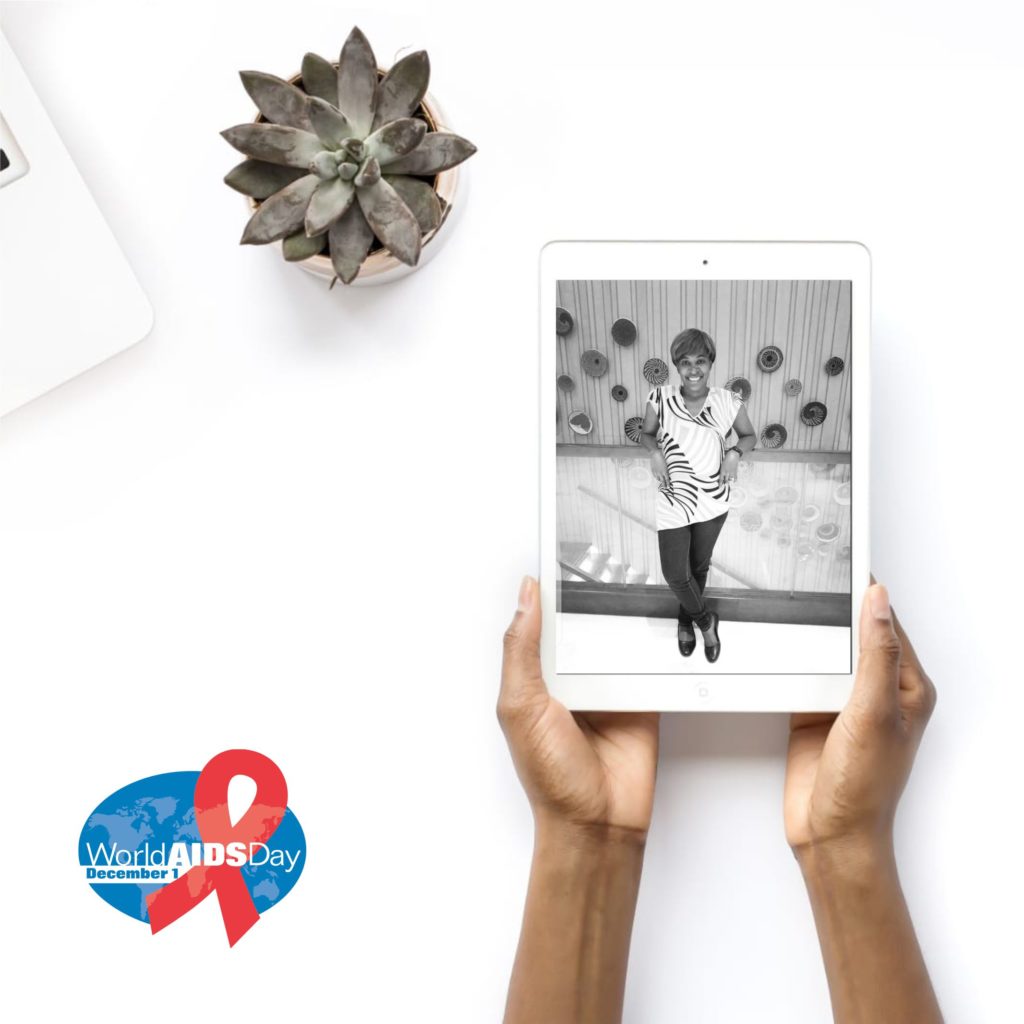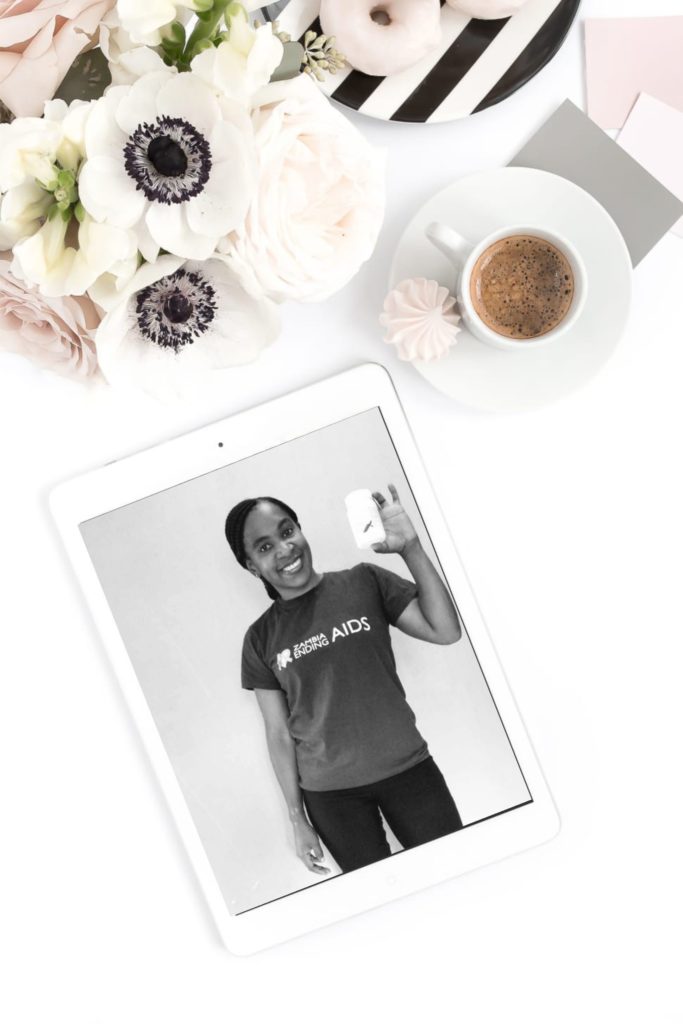One Woman’s Journey of Living with HIV and Building a Happy Family and Productive Life
Every year on World Aids Day, organizations and individuals raise awareness to help end the HIV epidemic around the world.
To help raise awareness, I’m going to share with you one woman’s journey of living with HIV and building a happy family and healthy life. In the same breath that we raise awareness about how to stop the spread of HIV, I think it’s important that we highlight how people who have been diagnosed with HIV have learned to manage their condition and build happy families and lives.
Many people are not aware that HIV is not a death sentence and there are many ways to live a healthy and beautiful life that includes having children without passing HIV on to those children or a partner.
Duba was diagnosed with HIV at the age of 25. In 1998, prior to her diagnosis, she suffered from tuberculosis but she never would have guessed it was because of HIV.

I interviewed Duba about her journey with HIV. Let’s listen to the circumstances surrounding her diagnosis, what her journey has been like, and the advice she has for those who have been diagnosed with HIV or know someone who has.
Q: What has your journey with HIV been like?
First and foremost, the circumstances that led to my finding out about my HIV status was because I was engaged to be married. We were advised by our marriage counselor to have an HIV test. It was a requirement at the Church we were both going to.
Unfortunately, my results came out positive while his came out negative. At the time, he said he was okay with my status and would still go ahead and marry me. But during my bridal shower, I had a relapse of TB and I was quite ill. At this point, we had kept my HIV status between the two of us and our marriage counselors. My illness made it clear that I was unwell and his relatives noticed during the bridal shower and got concerned. They insisted we go for HIV testing. But we already knew our HIV status.I gave him the go-ahead to tell his family.
They discouraged him from marrying me and he called off the engagement and wedding. That began my lonely life with HIV.
It was hard at first but with time I was able to move on. I had disclosed my status to my family too and they became my support system. I also disclosed my status to some close friends who also gave me a lot of support. The rejection from would-be partners continued, however.
Another big part of my journey is that I defaulted and developed treatment failure. When you have HIV, you have to take antiretroviral drugs daily. A failure to do so once you’ve been on them will cause the treatment to no longer work.
I didn’t take my HIV medication for two weeks and the drugs I was on stopped working. I had to be put on second line drugs. In my journey living with HIV, I have suffered from tuberculosis three times, meningitis twice and pneumonia three times. All these are opportunistic infections common in PLWHIV (People Living with Human Immunodeficiency Virus).

Q: Today, you’re married and have a husband and child who are HIV negative, can you share more about that?
I met my husband in 2013 after several disappointments. At the time, I was on my third regimen of TB treatment and already on ARVs. I told him about my status and he said he was okay with it. At first, I thought he was just trying to be a gentleman and with time he would also leave like the others. But after months of being together, he was still around. In 2015, he told me he wanted to spend the rest of his life with me. The same year in December, we agreed to have a child and I conceived but in February the following year, I was told I had a miscarriage. Even the scan showed I had lost the baby.
But two months later in April, the bleeding continued. I went back to the clinic and was told I needed to go for DNC at the hospital as the abortion was not complete. But when I went to the hospital, the Doctor, upon examining me, told me I was still pregnant despite the bleeding. I was asked to do another scan and HCG test which came out positive. And that’s how my journey to motherhood again continued.
In 2016, I gave birth to my son, and having followed PMTCT (Prevention of Mother to Child Transmission) guidelines, he was born negative and remains negative to this day. My husband is still negative too because my viral load is undetectable.
Q: When you were first diagnosed, did you think you’d ever get married or have children?
At the time, I never thought that I wouldn’t get married because I was engaged to be married. I didn’t think he’d leave me. But I thought I would never have children because at the time ARVs were not easily accessible to everyone.
Q: What are some common beliefs that aren’t true that people have about starting a family when they’re HIV positive?
Some of the beliefs I have heard is that an HIV+ mother cannot have an HIV- baby. And that an HIV+ mother can only conceive through IVF to avoid infecting her negative partner. Also, some people believe an HIV+ mother cannot breastfeed.
None of these are true. HIV therapy has advanced and we know a lot more about it today than we did initially.
Q: What kind of reactions do you get when you share your HIV story with people?
Before I went public about my status, people in my inner circle used to think I was lying and was trying to get sympathy for something that I didn’t have. Even when I came out in the open about my status some people criticized me.
Q: What do people do or say about HIV or your diagnosis that you wish they wouldn’t?
Some people think being HIV+ means one was promiscuous which is not true. Some people were born with it and some were raped. Some were also infected unknowingly by their partners.
Q: What’s the most positive and helpful reaction you’ve got?
One Catholic Father who counseled my ex-fiancé and I told me something that made me not give up on life. He told me HIV was not a death sentence and that if I decided to kill myself I would have lost out on being one of the people to be cured.
Q: What has having HIV taught you?
It has taught me that life is a privilege and worth celebrating every single day.
Q: What kind of conversations happen in your home and family about HIV?
It’s not a topic we discuss quite often except when we are discussing an issue we may have come across on social media or TV. It’s a part of our lives and we’ve learned to live with it without it consuming us.
Q: What myths about HIV do you want to shed a light on and share the truth about?
- Myth # 1: HIV is a death sentence – HIV is not a death sentence.
- Myth # 2: You can get HIV by touching, kissing or sharing a cup with someone who has HIV – HIV cannot be contracted through these means.
- Myth # 3: People living with HIV cannot have children – People living with HIV+ can have healthy HIV- babies just like people who are negative have HIV- babies.
- Myth #4:People living with HIV have a short life span – People living with HIV can live as long as someone who is HIV-
- Myth #5: ARVs kill people – ARVs actually prolong the life of someone living with HIV.
Q: What resources, books or people have you found most helpful on your journey?
The most useful resources have been my health care providers. They have helped a lot in understanding HIV and treatment.
Q: What do you want people to know about you?
I am an HIV advocate who wants to see people living with HIV live healthy and productive lives. I also want to see a world where PLWHIV are no longer stigmatized and are able to talk about their status openly.
Q: What extra measures do you have to take to keep yourself healthy and your immune system strong and how does that impact your daily life?
I make sure I adhere to my medication and follow my medical appointments. I exercise 6 times a week and try by all means to eat a balanced diet.
Q: What advice would you give someone else who’s living with HIV?
HIV is not a disease. It’s a condition which is manageable with ARVs. You can live a long, happy, and productive life and realize your dreams. This is not the end.
Q: What advice would you give to family members or friends who have a loved one who has HIV?
Love that person as love is medicine to the soul. They need your support now more than ever.
Q: Is there anything else you want to share?
Thank you for allowing me to share my story. I just want people to know that HIV is not a condition anyone should discriminate against. Even innocent people have been infected with it. So let’s learn to love and embrace people living with HIV.
As we recognize World Aids Day, it’s my hope that we can love and destigmatize those living with HIV. As Duba shared, “love is medicine to the soul.”
Until next time…

I hope reading this blog has been helpful to you! For more information contact Love From Mwai Experiences